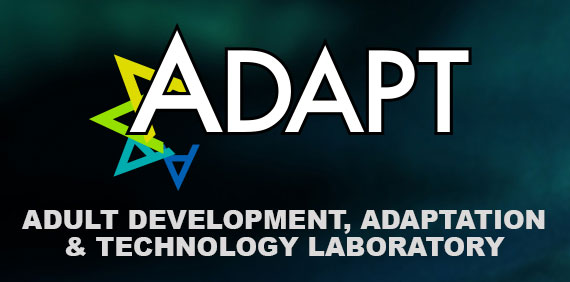Projects
Current Projects
The Daily Balance Project
Sometimes misunderstanding our own abilities can cause us to prematurely restrict what we do in daily life or conversely take on more risk that we can safely handle. This is why successful aging depends on accurate self-monitoring. To respond to the challenges of daily life in a way that is most supportive of health and well-being, older adults must have an accurate understanding of both their needs and abilities. To this end, the daily balance project will test the feasibility of using accelerometry and end of day self-reports to examine the intraindividual dynamics of balance and fall risk. The knowledge gained from this project will not only further knowledge on the strengths and limitations of older adults’ abilities to self-monitor, but also the development of health technologies to deliver personalized interventions.
This project is funded by a pilot grant from the Center for Health, Aging, and Disability.
Role: Principal Investigator
Collaborators: Jacob Sosnoff
This project is sponsored by a pilot grant from the Center on Health, Aging, and Disability.
Relationship Maintenance and Proximity Sensing (MAPS)
The key question guiding the MAPS project is: does spatial closeness equate to emotional closeness among older adults couples? The purpose of this study is to develop a behavioral signature of relationship health. This is important because marital relationships are crucial to health and well-being across the life-span, and especially in older adulthood. The marriage benefit, however, is conditioned by relationship health. That is, marriages support health in marriages characterized by relationship satisfaction, caring, spending time with each other, and other behavioral markers of relationship maintenance. However, the health of a relationship varies from day to day, in ways that may not be immediately perceptible to spouses until it’s too late. This interdisciplinary research project will develop and pilot methodologies to measure relationship health in a way that is unobtrusive, objective, and responsive to moment to moment variations in couples’ lived contexts.
This project is funded by a Future Interdisciplinary Research Explorations (FIRE) seed grant from the College of ACES.
Role: Co-Investigator
Collaborators:
- Brian Ogolsky, (PI)
- Alexandra Chronopoulou (Co-Investigator)
- Helmut Strey
Couples' Cumulative Risk
Over the course of their co-constructed and shared life course, married partners in older adulthood, who serve as each other’s primary source of support, have been found to resemble one another in health and well-being. In this study we use existing nationally representative longitudinal data from the Health and Retirement Study on couples in older adulthood to demonstrate how biomarkers of health cumulate within couples, result from shared experiences, change in meaningful patterns over time, and predict important health outcomes. This research will lead to new models of health and interventions that account for and seek to strengthen couples’ environments.
This project is funded by the National Institute of Health
Role: Principal Investigator
Collaborators:
- Richard Gonzalez, University of Michigan
- Jacqui Smith, University of Michigan
Project Control
The purpose of this pilot study is to examine the feasibility of using passive location monitoring and experiential momentary assessments to examine the dynamics of how life space varies from day-to-day in concert with the quality of daily social and health experiences. The pilot explores intraindividual variation in life space in a population of women at risk for life space depletion. Participants are followed for a five-week period and report on their appraisals of the momentary experiences.
Archived Projects
Personal Experiences in Everyday Routines (PEER)
The purpose of PEER is to document the physiological, behavioral, and cognitive dimensions of a dishwashing task. By asking our population of 60 participants (women age 60+ with self-reported arthritis or weakness in the hands) to complete a dual dish washing and attention task, we were able to disentangle the cognitive and physiological dimensions of a common instrumental task of daily living.
Role: Co-Principal Investigator
Collaborators:
- Rich Gonzalez, University of Michigan
- Karen Nielsen, University of Michigan



